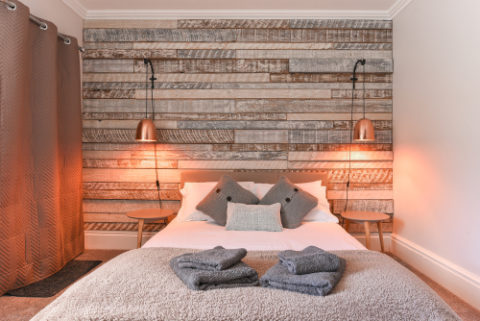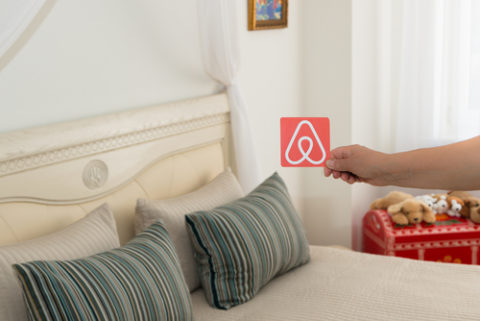It’s that time of year. Students are heading off, full of excitement for starting a term at University. But for the Mums and Dads left behind – what’s their next chapter?
Well, a new trend is emerging of parents’ renting out their kid’s room. Platforms like Airbnb have made letting rooms accessible, reliable and acceptable.
Plus, with a typical UK host earning £3000 per year for an average of 36 nights*, it could be profitable too.
So, what is involved in becoming an Airbnb host?
Do It Right
Before you start you must have the right permissions – speak to your landlord, freeholder or mortgage lender first.
Most mortgage lenders will let you do it but might ask you to change mortgage type or pay a fee. Rental contracts are more restrictive.
Review your home insurance too – having a tenant might invalidate your existing deal. If so, speak to a specialist insurer that covers rentals.
And finally, you must do a fire risk assessment of your home. Your local fire station will do a check for you, for free.
Start-Up Costs
Will you need to decorate or fix issues?
The room to-let needs to be attractive and functional, so smarten it up before you become an active host.
This includes clearing the room of clutter. Store any surplus items at a nearby self-storage facility – Shurgard Self-Storage have some affordable storage prices.
On a positive note – you can earn a £7,500 tax break each year for letting out a spare room in your house!
The Price Is Right
The goal is to make money, but you need to be sensible when setting prices.
Do research on the cost of local houses AND hotels, plus consider seasonality. Also, take in to account what your house has to offer so you can be sure that you are providing excellent value.
A positive experience = the right feedback.
Sell The Room
Much like selling something on eBay – you need to write the perfect listing to attract guests.
What is your home’s USP? Are you close to public transport, or local attractions? Do you provide WIFI?
BUT you must also not mislead anyone. If they can’t use the kitchen, just say. You don’t want miffed guests leaving bad reviews.
Pictures are important too. The right shot with a clutter-free and comfy room will attract a guest.

Dealing With Admin
Being an Airbnb host comes with a lot of admin.
- Emails: You’ll need to take time to respond to enquiries – your response rate will be shown. You will get many dead leads too, but fast and open communication will catch the good ones.
- Guest Approval: If you don’t opt for instant bookings, you might want to vet your guests first. Check their Facebook profile, or see their Airbnb history.
- Keys: If you don’t have a key safe – you’ll need to organise a time to meet and greet your guest. If you’re not around you need a back-up plan of a neighbour, friend or local business. Be sure to get several spare keys cut!
- Payment: Airbnb charge your guests before they arrive, and release the money 24 hours after they check-in. Airbnb will take a fee (approx. 3-5%).
- Security Deposits: You can charge a security deposit. Airbnb will take the payment details, and it is only processed if you want to make a claim. You will need to do this through the Resolution Centre within 14 days.
- Cleaning: Will you do this? Or will you outsource? Either way you need to ensure that the room is pristine ready for your next visitor. Turnaround times can be tight, so you’ll need to be flexible.
Go Above And Beyond
Your guests will score you after their stay on overall experience, accuracy, cleanliness, communication, check-in, location, and value.
Clean sheets, towels, and toilet paper are must-haves, but what will you do extra to score the highest ratings?
It could be a drink on arrival. Help with taxis, or event bookings. Flexibility on check-in times? You’ll need to be the host(ess) with the most(ess) to get the best score. This is the way to rise up the listings.

Conclusion
You’ll need to do some background work to set up your rental.
And once up and running, it does require your effort. However, the flexibility it offers is amazing – you only need to take bookings during term time. When YOU want.
The money-making potential of Airbnb is also very real. No wonder we are seeing a rise in the empty nest generation maximising their home through rentals, rather than downsizing.
And for your child at Uni? Well they get the benefit of a newly upgraded room and 5* star service when they return!
Are you an Airbnb host?
What tips would you share?
*source: Airbnb




Leave a Reply